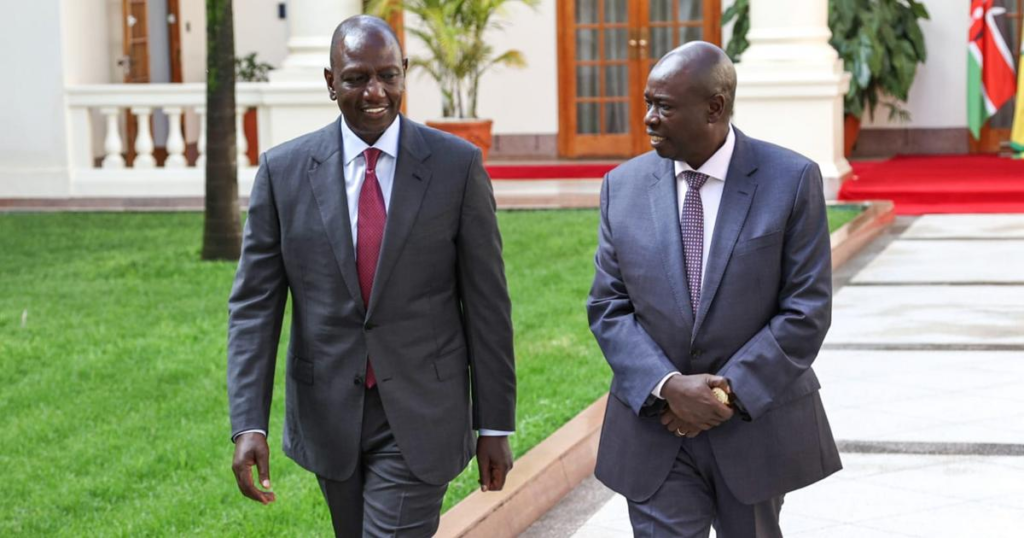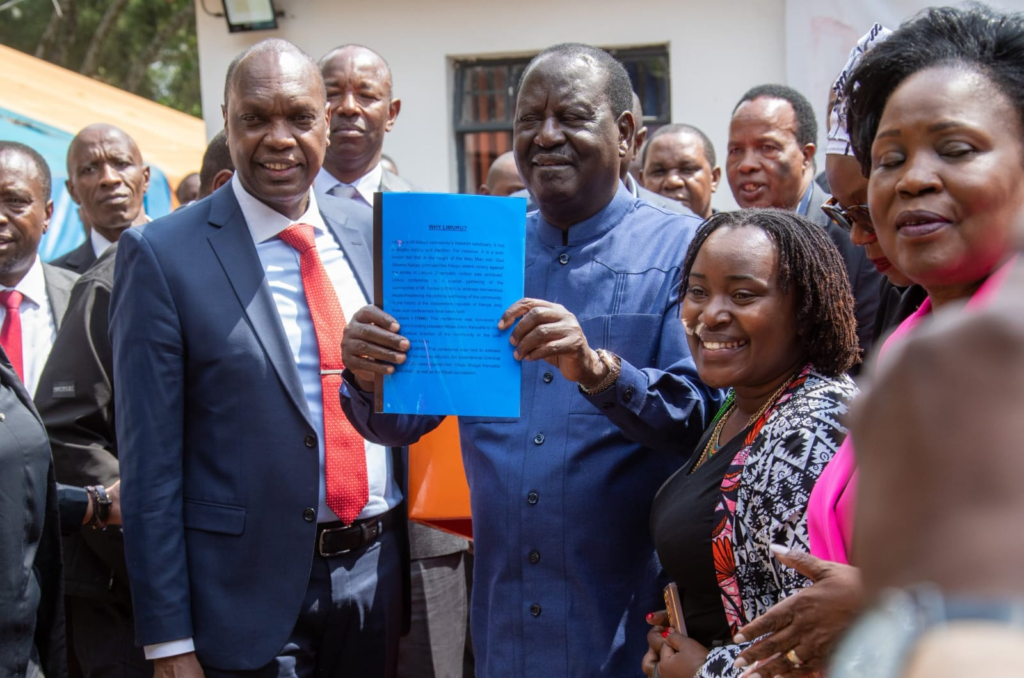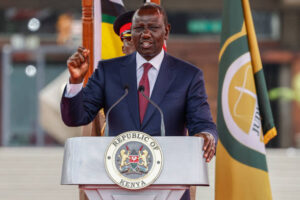
| Mwau Dorothy |
In 2024, Kenya’s political landscape is marked by an intensifying rivalry between President
William Ruto and his Deputy, Rigathi Gachagua.

This rift has led to factionalism within the
government and the ruling party, creating a significant source of political tension and instability.
Sources of Rivalry
The rivalry between Ruto and Gachagua has its roots in differing political ambitions, governance
styles, and approaches to addressing national issues.
Political Ambitions: Gachagua has been perceived as positioning himself for a future
presidential bid, which has created friction with Ruto’s agenda and leadership style.
Governance Styles: Differences in governance approaches have led to disagreements on
policy and administrative matters.
Gachagua’s outspoken and often controversial remarks
have contrasted with Ruto’s more diplomatic approach, leading to internal conflicts.
Ethnic and Regional Politics: The rivalry is also fueled by ethnic and regional politics,
with Gachagua leveraging his influence in the Mount Kenya region while Ruto
commands significant support in the Rift Valley and other areas.
Leaders Supporting Gachagua

Several leaders have aligned themselves with Gachagua, often drawn by regional loyalty or
shared political goals.
Moses Kuria: The Trade Cabinet Secretary has been a vocal supporter of Gachagua,
often backing his calls for greater focus on regional development and local issues.
Alice Wahome: The Water and Sanitation Cabinet Secretary has also backed Gachagua,
particularly on issues related to devolution and resource allocation in the Mount Kenya region.
Mutahi Kahiga: Governor Nyeri County.
Cleophas Malala: Secretary General UDA party
Raila Odinga: the opposition leader supports the “ONE MAN ONE VOTE ONE
SHILLING”
Leaders Supporting Ruto and Criticizing Gachagua
On the other hand, several leaders have rallied behind President Ruto, criticizing Gachagua’s
approach and actions.
Kipchumba Murkomen: The Transport and Infrastructure Cabinet Secretary has been a
staunch supporter of Ruto, often criticizing Gachagua for his divisive rhetoric and public
outbursts.
Farouk Kibet: Personal assistant of the president. He is against tribalism and emphasizes
the need for national unity.
Musalia Mudavadi: prime cabinet secretary. Emphasizes the need for socialism and
unity among different regions and communities.
The rivalry between Ruto and Gachagua manifests in several key areas:
Economic Policies: Gachagua has been critical of some of Ruto’s economic policies,
arguing that they do not adequately address the needs of the Mount Kenya region. He has
called for more targeted development projects and resource allocation to his political
base.
Leadership Style: Gachagua’s direct and often confrontational style has clashed with
Ruto’s more measured and diplomatic approach. This difference has led to public
disagreements and a lack of cohesion in the administration.
Regional Representation: Gachagua has frequently raised concerns about regional
representation and equity in government appointments and resource distribution,
advocating for greater attention to the Mount Kenya region.
Impact on Governance and Stability
The rivalry between Ruto and Gachagua has significant implications for governance and political
stability in Kenya.

Government Cohesion: The ongoing disputes have undermined the cohesion of the
government, leading to conflicting messages and policies. This lack of unity has affected
the administration’s ability to effectively address national issues.
Public Perception: The public disagreements between the President and Deputy
President have led to a perception of instability and dysfunction within the government.
This perception has eroded public trust and confidence in the administration.
Political Alliances: The rivalry has also influenced political alliances, with leaders and
factions within the ruling party and beyond aligning themselves with either Ruto or
Gachagua. This realignment has further polarized the political landscape.
Future Prospects
The resolution of the rivalry between Ruto and Gachagua is crucial for Kenya’s political stability
and governance.
Dialogue and Mediation: Efforts to mediate between the two leaders and foster dialogue
are essential to bridge the divides and restore unity within the government.
Policy Compromises: Finding common ground on key policy issues and addressing
regional grievances through targeted development initiatives could help reduce tensions.
Leadership Changes: Depending on the political dynamics, there could be changes in
leadership or political alliances that reshape the current power structures.
The ongoing political rivalry between President Ruto and Deputy President Gachagua remains a
central issue in Kenya’s political scene, impacting governance, public perception, and the future
direction of the country. Resolving these tensions will require concerted efforts from both leaders
and their supporters, as well as broader engagement with all stakeholders in the political
landscape.




